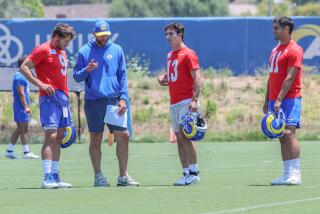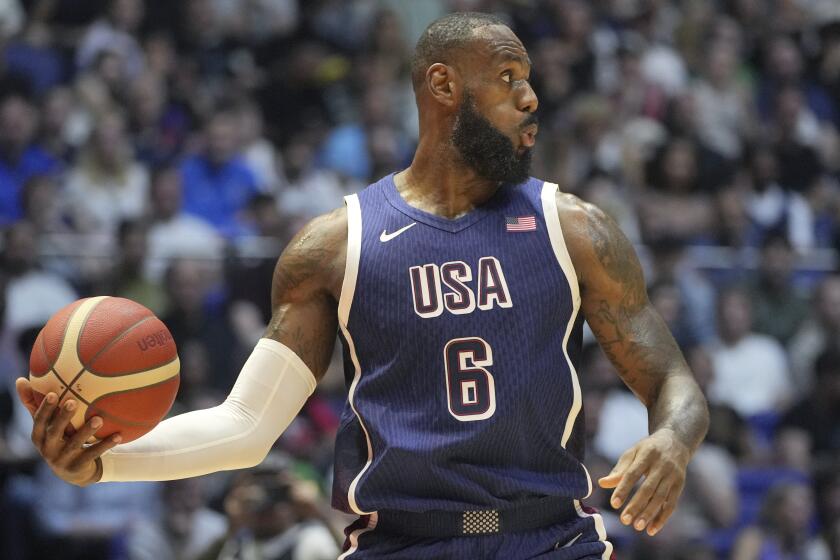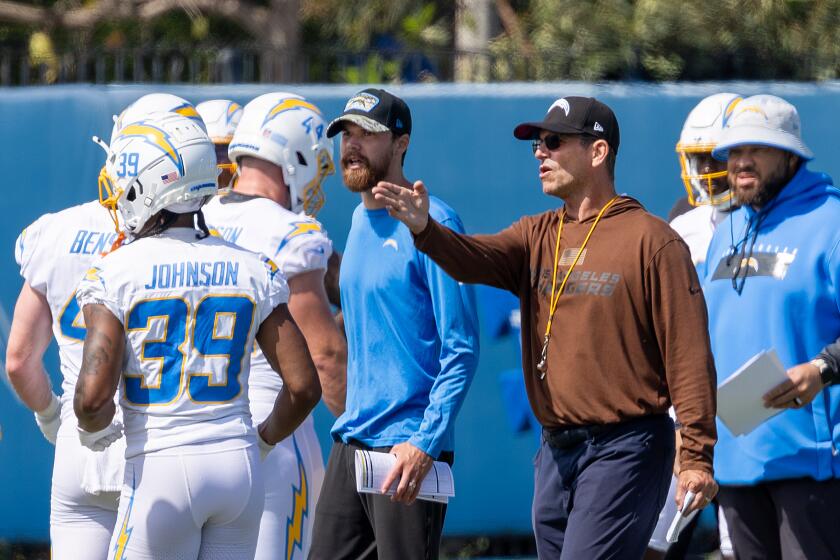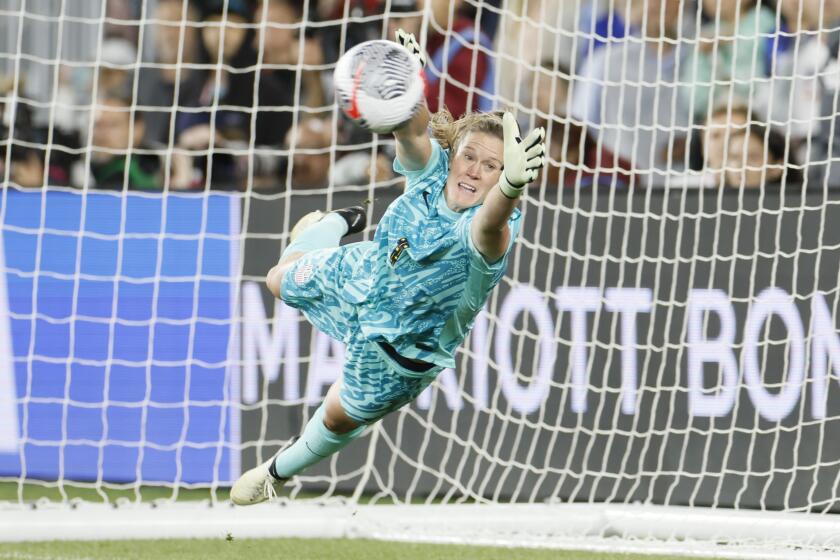Injury Causes Pain and Limits Motion : Medical analysis: Case complicated by lack of blood supply to bone and loss of cartilage.
Severe pain and an inability to perform the quick motions of professional baseball and football are the main reasons Bo Jackson’s hip injury might end his athletic career.
Jackson sustained a fracture-dislocation of the left hip on Jan. 13 in a Raider playoff game. A chip of bone was knocked off the acetabulum, the cup-shaped bone that forms the hip socket.
The dislocated bone popped back into place on its own. Surgery was not required. Since the injury, Jackson has walked with crutches and begun a reconditioning program.
But subsequently two other potentially more serious hip problems have become apparent, according to physicians familiar with Jackson’s case.
One is avascular necrosis. This is a medical term for the loss of blood supply to the tip of the femur--the long bone of the upper leg--caused by ruptured blood vessels in the hip. Avascular necrosis is sometimes reversible. But it might also lead to bone deformity and chronic pain.
The other problem is a loss of cartilage in the hip joint. Cartilage is the smooth material that prevents friction in a joint. With no protective cartilage, bone can rub against bone. In the hip joint, this can limit motion, cause severe discomfort and result in chronic arthritis.
Of the two problems, the cartilage damage might turn out to be more limiting, according to experts in orthopedic surgery who have not been involved in Jackson’s care.
“Once the cartilage is gone, it doesn’t grow back,” said Bert Thomas, an orthopedic surgeon at the UCLA Medical Center. “If, in fact, the cartilage is completely eroded, that is a final event (for an athlete).”
Matthew Shapiro, another UCLA orthopedic surgeon, said that severe loss of cartilage within months of a hip injury such as Jackson’s was “pretty unusual.”
Nevertheless, Shapiro added that if Jackson “has really lost the cartilage covering of the bones of the hip, there is no way that can regenerate by itself or be surgically reconstructed. That would probably prevent him from playing again.”
The extent of the damage related to Jackson’s avascular necrosis will not be known for months or years. If Jackson is meticulous in staying off of his left foot, the blood supply to the head of his left femur might reestablish itself. Some patients also undergo an operation in which surgeons drill holes into the bone to help it heal.
“If he only had avascular necrosis, he might be able to play a year down the line,” Shapiro said.
But if Jackson bears too much weight on his left foot, or if the initial blood-supply damage proves irreversible, then the head of his damaged femur might fracture and deform.
According to Thomas, the average person with a hip fracture-dislocation is able to resume “their normal activities” after several months although they may have subtle residual injuries that lead to the development of arthritis after 10 or 20 years. When the arthritis is severe, surgery to replace the hip joint may be necessary.
Despite the apparent severity of Jackson’s injury, orthopedic surgeons said it was difficult to be certain about Jackson’s future.
“Everybody has different pain thresholds, but hip pain is very painful,” said Thomas Vangsness, an orthopedic surgeon at the USC Medical School. “If (Jackson) has arthritis in that hip, he will probably never play again. He may be able to be a designated hitter, depending on his pain, but running is out and football is out.”
Shapiro, of the UCLA Medical Center, had a more optimistic view, citing the case of New York Giant running back, George Adams, with similar injuries who stayed out for a season but then returned to football. Other sources said, however, that Adams’ injury was different from Jackson’s.
Elite athletes “”have better than normal healing capacities,” Shapiro said. “I wouldn’t for a minute say that his career is over.”
BO JACKSON’S INJURY
Bo Jackson’s Jan. 13 injury fractured the back of the socket and dislocated the hip. The joint is back in place, but doctors believe the blood flow was disrupted to the femur.
Tests show a progressive loss of cartilage on the ball and socket surfaces. The cartilage helps to pad the bones and reduce friction. Bone cells may have died because of the loss of blood to the femur. This is an early stage of avascular necrosis, and the bone could grow weaker over time. As a result, doctors believe Jackson’s athletic career is over.
More to Read
Go beyond the scoreboard
Get the latest on L.A.'s teams in the daily Sports Report newsletter.
You may occasionally receive promotional content from the Los Angeles Times.






